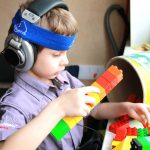We all want to have children who have great self-esteem and the ability to assertively stand their ground in face of conflict and challenge. To be able to view change as an exciting adventure with something new to gain from, is a wonderful goal and leads to increased self-exploration with increased application of new knowledge. But we do not always have this. So many books to read, each with their own opinion. I want to pose 5 points for you to ponder about and then provide you with 10 action items that will support you in your goal of achieving this feat.
- Self-esteem is driven from inside each one of us. The earlier building block in development is called intrinsic motivation. We are hardwired from the beginning of life to propel ourselves forward in development and this need for growth comes from deep within us.
- Children are not born telling the world they will have a self-esteem problem, but rather they are born with an innate need to connect with people, to have relationships, and to want to please others.
- Children are more motivated with their own sense of success and will naturally gravitate towards repeating a successful action in order to affirm this in the nervous system, translating this to good mental health and well being.
- Atypically developing children will shy away from new and novel experiences that could provide the very success they seek. In order to compensate, they may become rigid, controlling or “selfish”. This is an attempt to self protect, to preserve self-integrity, albeit not very successful.
- Our words do not always matter. Children know when we are patronizing them and saying: “You are such a smart girl!” unfortunately does not go far in building self-esteem. Once children feel the accomplishment in the body and mind, triggered by their own action, they can feel a sense of pride that will support the careful building of self-esteem.
Be careful to not give your child the subconscious message that you are doing this for her, because you do not trust her to do it for herself. A well-meaning gesture out of love might be the very thing that “robs” the child from the very experiences they need in order to feel accomplished.
What do we do then or… What do we not do?
- Think problem solving! Create problems on every day familiar tasks for them to solve. Have fun in being “dumb” and playful at the same time. It does not work if you start with new and novel tasks, but use familiarity to ease the child into this process.
- Validate each small success through praising the exact action and not stating a generic “good job”! The specificity of your comment will assist in helping the child to “own” the action and therefore find a willingness to repeat it.
- Be more observant of your child. Catch them doing things “right” or trying something new and validate the action. Especially when your child is non-verbal it is so easy to miss the cues when we are not watching.
- Do not over focus on extrinsic rewards as this comes later and we certainly all appreciate a reward for a job well done (our paycheck for example). But this is not how we develop self-esteem. This has to come from a sense of prowess within. The athlete receives the medal, but “owns” all the hard work it took to get to this achievement and knows it would be because of this alone, that he could achieve this again. The medal clinches the acclaim, but the hard work ensures the self-esteem.
- If you have an atypically developing child, you may find yourself wanting to protect your child from more times of difficulty and you may be doing for her what she may become capable of doing for herself. Be careful to not give your child the subconscious message that you are doing this for her, because you do not trust her to do it for herself. A well-meaning gesture out of love might be the very thing that “robs” the child from the very experiences they need in order to feel accomplished.
- When you praise your child, do not make too much eye contact and be-labor the praise thinking that the more you say, the more the child’s self esteem will grow. The opposite is far more frequently the truth. Just giving a passing comment, letting her know you had noticed and a warm smile of encouragement and faith in her abilities will speak far more to the child than effusive praise.
- Do not go into problem-solving mode when you or your child is rushed for time and anxiety tinges the situation. It has to be playful and inviting, so take note about when to use this action.
- When your child is in distress and feeling particularly stressed, it may also not be the best time to go into problem solving mode. Then it would be best to go into emotional mode and validate the child’s frustration or expression of emotion.
- Be sure of your child’s developmental level so as to ensure that you are not expecting a performance demand that is two steps higher than current level of accomplishment. This will create the very anxiety and avoidance behavior that we wish to not see.
- Always keep in mind that your child is a growing mind and body. The nervous system requires successful experiences to build the motivation to try again. Be in tune with your child as much possible, though also allow yourself the time to simply be and take care of yourself as well.
If you have any questions or comments, please post in comments section. Also, please post if another thought came to mind that you would like to hear my thoughts about.








